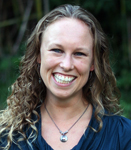This post was originally published on the IntraHealth International blog.
 Currently, almost half of the world’s population is under the age of 25. That represents three billion adolescents who have their full lives ahead of them. A strong education and economic opportunities can help adolescents plan productive and fulfilling futures, but without access to reproductive health services, their plans could be interrupted by unintended pregnancy. Unfortunately, many adolescents currently live in places that restrict access to these services for young people.
Currently, almost half of the world’s population is under the age of 25. That represents three billion adolescents who have their full lives ahead of them. A strong education and economic opportunities can help adolescents plan productive and fulfilling futures, but without access to reproductive health services, their plans could be interrupted by unintended pregnancy. Unfortunately, many adolescents currently live in places that restrict access to these services for young people.
And in some cases, these adolescents are married. Some communities view early marriage as a protective factor for a young woman’s sexual health and safety; however, early marriage is a risk factor for many health and social issues. Often married to older men, these young women typically have little to no negotiating power in their relationships, resulting in unsafe sex and adolescent pregnancies. Read more »
